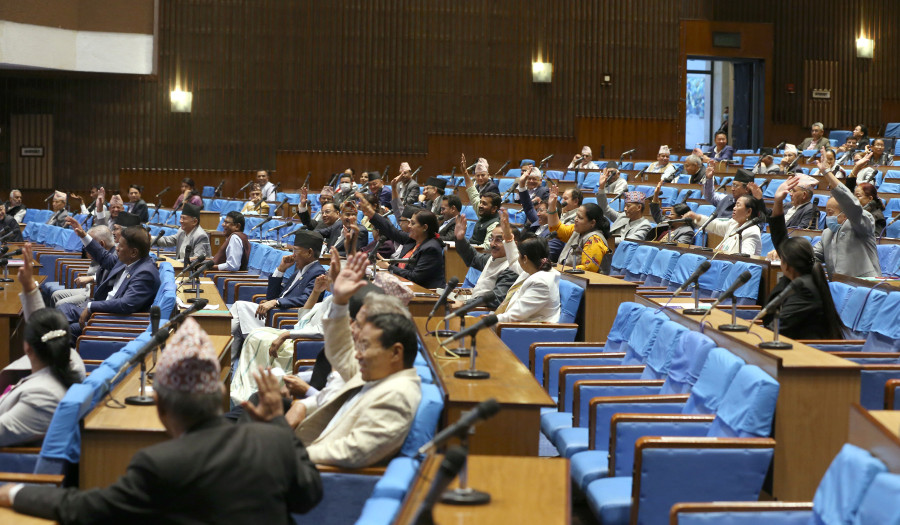National
House panel for extending statute of limitations on rape by up to three years
Observers say that’s not enough and doesn’t match Nepal’s rights commitments made in international forums.
Aakriti Ghimire
On Friday, the Law, Justice and Human Rights Committee of the House of Representatives decided to propose amendments to highly contested statute of limitations on rape.
According to Section 292(2) of the National Penal Code, a plaintiff can file a complaint only within a year from the date of the incident.
The committee said it will propose extensions to the statute of limitations.
“We have decided to amend the existing law. Statute of limitations for rape of individuals above 18 years, for children, disabled individuals and senior citizens will be increased,” said Laxman Aryal, secretary at the parliamentary Law, Justice and Human Rights Committee.
According to the new amendment proposal, adults who are subjected to rape will be able to file a lawsuit within two years of the incident.
Likewise, in the case of minors, a rape case can be filed within three years of the victims turning 18.
“Any incident that has happened while the individual was a minor can be brought forth until they are 21 years old,” said Aryal.
In addition, for people with disabilities and senior citizens, the victims will be able to bring forth a complaint within three years of the incident.
However, even under these amendments to the statute of limitations on rape, recent cases, like that of the child actor and model that came to light in May, will not be accommodated.
The statute of limitations on rape was extended from 35 days to 180 days through Act to Amend Laws to End Gender Violence and Ensure Gender Equality 2072, following the ‘Occupy Baluwatar Campaign’ in 2012.
In the Muluki Criminal Code 2017, which came into force in August 2018, the statute of limitations on rape was increased to one year.
The time limit for seeking legal remedy for crimes as abominable as rape is restrictive, unconstitutional and against fundamental principles of human rights, according to legal experts.
On May 24, six young female lawyers filed a petition at the Supreme Court on Tuesday demanding the removal of the statute of limitations on rape stating that the time allowed for bringing a lawsuit under Section 292(2) of the National Penal Code is in violation of constitutional provisions—Article 21 of the ‘right of victim of crime’ and Article 38(3) under the ‘rights of women.’
Responding to the petition, the Supreme Court has ordered the six defendants including the Prime Minister’s Office, the Ministry of Law, Justice and Parliamentary Affairs, and the Ministry of Women, Children and Senior Citizens, among others, to present a written response regarding the case.
On May 26, nine members of the upper house also registered a resolution motion at the National Assembly demanding a removal of the statute of limitations on child rape cases and a review of the time limit for legal action for rape cases involving adult victims.
Despite the persistent public outcry to completely remove the statute of limitations on rape laws, this move by the committee, however, is a temporary solution, according to them.
“There needs to be thorough research on the removal of statute of limitations. The Ministry of Law is doing one, based on which we will bring forth another amendment as soon as possible,” said Aryal.
“Because of a lack of political consensus among the political parties, we couldn’t remove the statute of limitations entirely. But we must make progress, and that is why we have increased the time limits by a couple of years.”
However, legal experts and activists find this move ostentatious as opposed to celebratory. They question the decision of the lawmakers in introducing arbitrary increments to the statute of limitations as opposed to realizing Nepal’s human rights commitments.
“This is an utterly pretentious act, done just for the sake of doing it. Increasing the number by two years makes no sense. The kind of emblematic cases that have come up have been shared after 8 to 10 years! So extending the statute of limitations to two-three years doesn’t help,” says Ranjeeta Silwal, one of the advocates involved in filing the petition.
“This isn’t a practical solution. It is a clear mockery of the human rights commitments Nepal has made.”




 10.12°C Kathmandu
10.12°C Kathmandu















